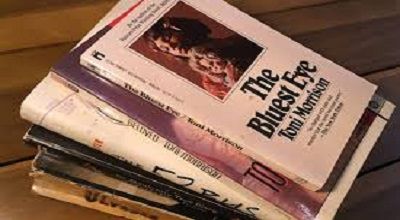Banned Books in Education
The banning of books in education, or censorship of certain texts within educational institutions, has been a contentious issue throughout history. Banned books in education can refer to books that have been removed from school or library curricula. Or those that have faced challenges and attempts to restrict access to them due to concerns about their content. Here are some key points to consider regarding banned books in education:
Reasons for Banning:
- Inappropriate Content: Books may be banned due to concerns about their content, such as explicit language. Sexual content, violence, or themes that some consider offensive or inappropriate for certain age groups.
- Controversial Ideas: Some books are banned because they contain controversial ideas or challenge prevailing norms and beliefs. Which can make educators and parents uncomfortable.
- Political or Social Reasons: Books can also be banned for political or social reasons. Especially in repressive regimes where certain ideas or viewpoints are prohibited.
Banned Books in History:
- Throughout history, many classic works of literature have faced censorship or been banned in schools. Examples include “To Kill a Mockingbird” by Harper Lee, “The Catcher in the Rye” by J.D. Salinger, and “1984” by George Orwell.
- Works like these have often been banned or challenged due to their content. Including themes of racism, sexuality, or political dissent.
First Amendment and Freedom of Expression:
- In the United States, the First Amendment of the Constitution protects freedom of speech and expression. As a result, banning books in public schools or libraries is often seen. A violation of these principles leads to legal challenges.
- The Supreme Court case Tinker v. Des Moines Independent Community School District (1969) affirmed. That students do not “shed their constitutional rights to freedom of speech or expression at the schoolhouse gate.”
The Role of Education:
- Many educators and scholars argue that books should not be banned in education. But rather that they can be used as tools to promote critical thinking, discussion, and a deeper understanding of complex issues.
- Banning books can limit students’ exposure to diverse perspectives and hinder their ability to engage with challenging ideas.
Controversies and Challenges:
- The banning of books often leads to controversies and debates within communities and educational institutions. Parents, teachers, librarians, and students may have different opinions on what is suitable for the curriculum.
- Some organizations, such as the American Library Association (ALA). Actively advocate against book censorship and provide resources for educators facing challenges.
Alternative Approaches:
- Instead of banning books, some schools and libraries adopt alternative approaches like providing parental consent forms, offering alternative reading options, or age-appropriate labeling to address concerns while still preserving access to diverse literature.
Final Words
In summary, the banning of books in education is a complex and contentious issue. It involves balancing concerns about content with the principles of freedom of speech, academic freedom, and the promotion of critical thinking. While some books have been banned or challenged, there is an ongoing debate about the appropriate ways to address concerns about book content without stifling intellectual freedom and the educational value of literature.
